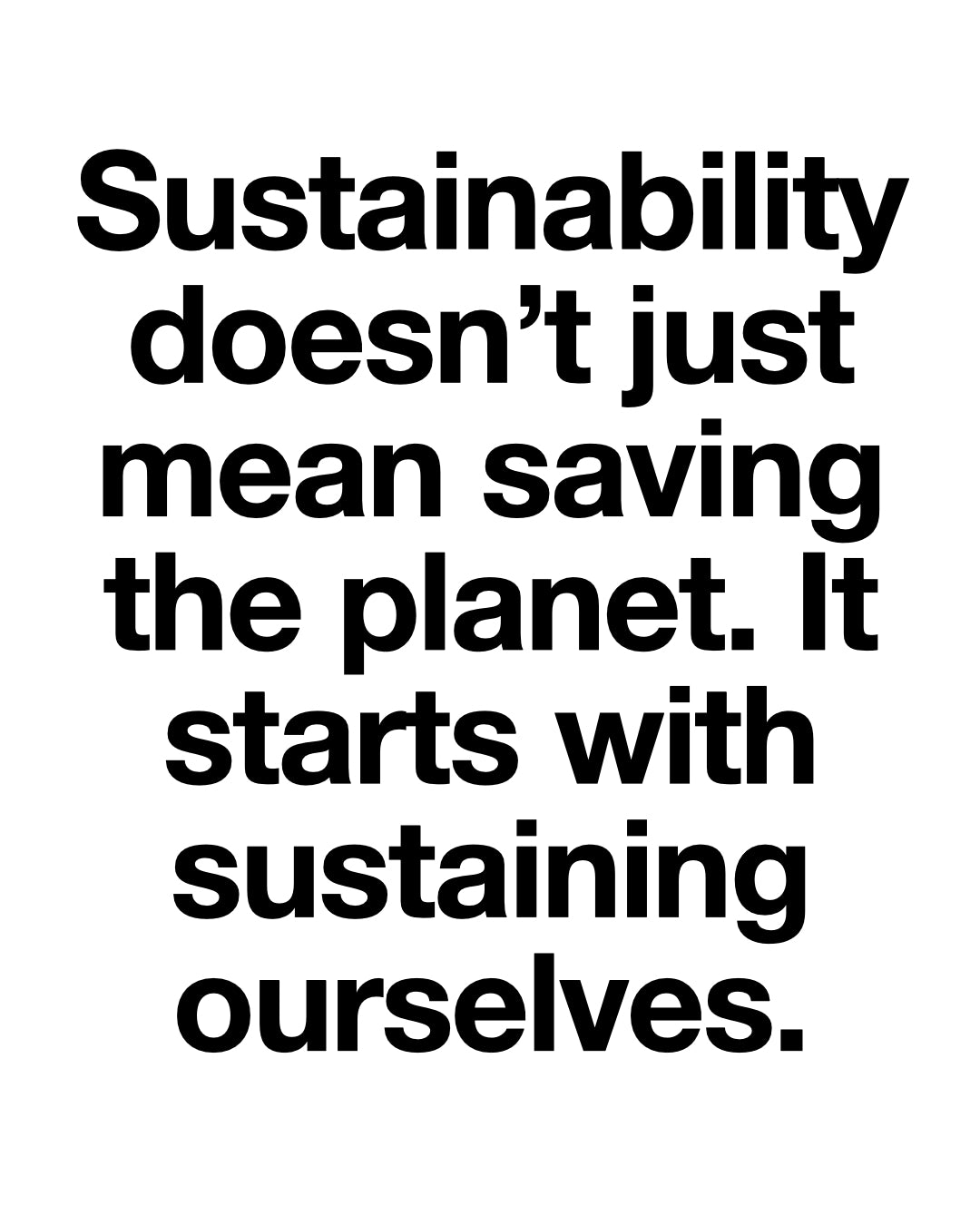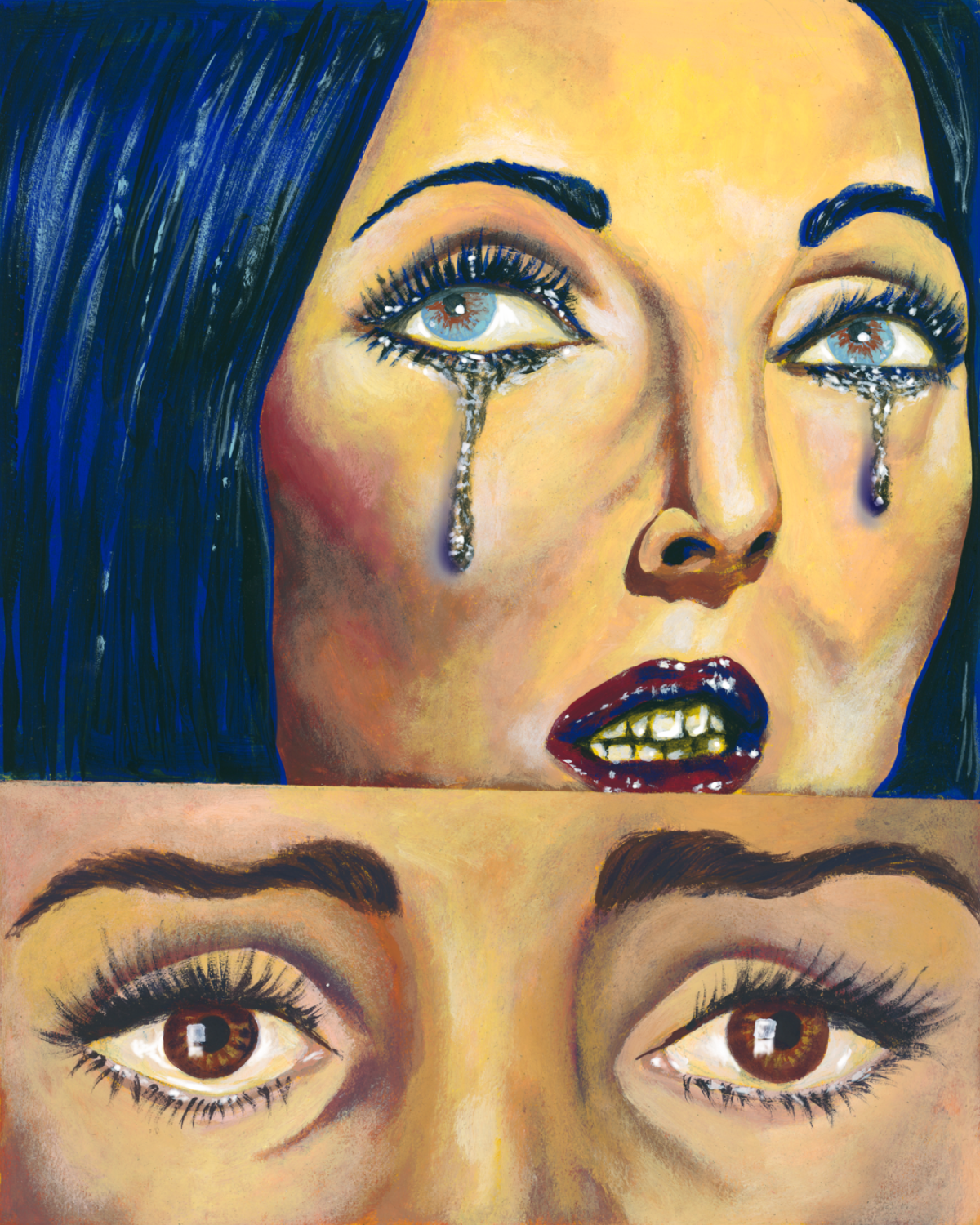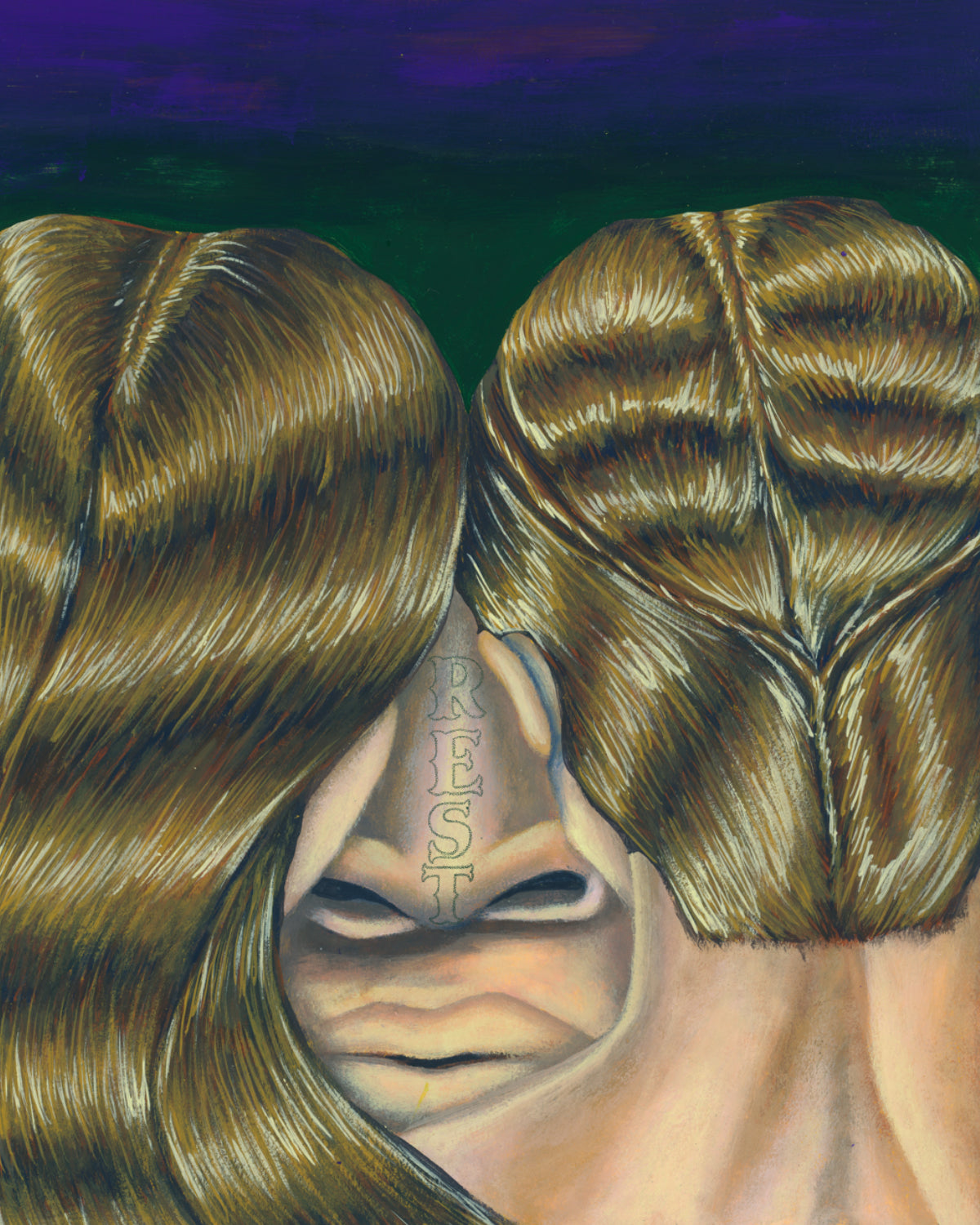
Soft Hearts, Heavy Minds: On Compassion Fatigue
We’re living in an age of endless emergencies - the climate crisis, political upheaval, threats to our community - and the expectation is that we care, constantly. But what happens when care becomes too heavy to hold? This piece explores the overlooked reality of compassion fatigue: a state where empathy turns into exhaustion and burnout steals the joy from meaningful work. We ask the radical question: What if stepping back is also a form of care? In a world that profits off our burnout, protecting your energy isn’t selfish, it’s survival. Below, a reminder that sustainability begins with the self, and that rest is not a retreat, but resistance.
ILLUSTRATIONS SOFIA HEFTERSMITH @sofia.heftersmith
TEXT HADLEIGH SWARTS @nothadleigh
As a society, we’re in a constant cycle of observing the suffering of others and the environment, sometimes through more palatable experiences than others. Whether it be through an educational lens, social media, or in our real lives, we’re consistently onlookers to the pain that comes with living in a destructive, capitalist society.
I vividly remember an infographic about climate change in my elementary school classroom and participating in challenges to limit our environmental footprint, such as taking five-minute showers or tracking how often we turned off all the lights when we left a room. This now feels like a distant relic that would be too controversial for today's environment in the US education system.
Growing up in a state where the environment actively shaped our daily lives for better and worse made me aware of climate issues from a young age - environmentalism is something that is ingrained in my DNA. The picturesque landscape of Colorado was met with yearly devastation from flooding, mudslides, and wildfires. Friends lost their homes, businesses never got rebuilt and people lost their lives. It was a constant reminder of the power the environment wields. The constant reminder became a numbing experience and was a ‘normal’ that we eventually were forced to co-exist with.
Environmentalism is deeply entwined not only with my work but my day-to-day experience, personal ethos, and where I source inspiration. The years of climate and political research, understanding climate change literature, and the daily reading of climate news can be grating. I often find myself at an impasse where I’d rather ignore my work for weeks at a time than continue to face an issue that feels much larger than myself. This starts the shame spiral of wondering if what I’m doing is even worth it – or making a difference. Occasionally thoughts flutter through my mind: what would it be like if I wasn’t trying to make a difference? I’ve simply found myself fatigued from trying to do so much.
"There’s a lot of shame in admitting that the weight can be too much to carry on our own. When we’re attempting to fill so many cups, we can forget to fill our own."
Lately, I’ve found that my mind has been elsewhere from climate work. I’m faced with concern for my community, loved ones, my neighbors, and colleagues. Typical run-of-the-mill daily interactions have turned into sharing the names of immigration attorneys with friends, making sure my family members’ passports are up to date, debating if it’s time for long-term birth control, checking in on neighbors, and worrying about the impact of anti-LGBTQIA+ legislation. When it feels like we’re constantly doing a run-through of a survival checklist, how do we continue to show up for everything else that is happening? This leaves me at an impasse of feeling I’m turning my back on climate issues because my focus is being pulled elsewhere. The weight of having your heart torn in different directions can come with an immense sense of guilt, fatigue, and overwhelm that makes it feel impossible to find balance within.
There’s a lot of shame in admitting that the weight can be too much to carry on our own. When we’re attempting to fill so many cups, we can forget to fill our own. We live in a time where we’re faced with the climate crisis, the rise of authoritarianism, genocide, the kidnapping of our neighbors, and anti-trans legislation…the list feels neverending. We want to pour so much of ourselves into each and every issue but at what point do we overexacerbate ourselves into a state of withdrawal?
This state of burnout, and my attempt to better understand it, led me to work by Isasis Hernandez, ‘Queer Brown Vegan’, a storyteller and environmentalist who often explores the connection between self and the environment. Young people and minorities often feel a call to action across every issue that society is facing, especially the climate crisis. This is just as true for me, as my younger self had my own call to act, stemming from the environment around me. When you’ve faced adversity, you’re more likely to answer the call to action when crisis strikes. This call from a young age, the rapid growth of global and local issues, and the need for immediate action creates burnout or even compassion fatigue, a feeling that captures the essence of the very moment we’re in society, especially in the United States.

"Addressing the climate crisis calls for us collectively to slow down, be methodical, and practice thoughtfulness. This goes against the grain of our society and can feel akin to pushing against a tidal wave."
Addressing the climate crisis calls for us collectively to slow down, be methodical, and practice thoughtfulness. This goes against the grain of our society and can feel akin to pushing against a tidal wave. As we slow down we can feel toppled by other community or global issues we’re facing especially when the sense of urgency kicks in to jump into action. It’s times like this when the climate crisis can really start to feel like it’s too big of a problem to address on our own and can slowly drift out of our focus as we’re zeroed in on other issues that feel more pertinent. It’s not that we suddenly no longer care about the environment, it’s that we’re facing burning out, anxiety, and dread. When I’d want to ignore my work for weeks at a time it’s not that I wanted to step away from engaging in the climate crisis in its entirety. I was stuck in the loop of eco-anxiety but didn’t understand how to navigate through those feelings, especially the guilt.
Being at an impasse and feeling compassion fatigue calls us to turn inward and recognize the need for balance when taking action particularly when it comes to the environment. A common example of this is a young person who gets involved in activism, doesn’t prioritize self or community care and then becomes burnt out. Actionable or activist spaces often prioritize a sacrificial mindset to keep going, pushing, and making change. In an interview with Dr. Panu Pinkala discussing eco-anxiety, Isaias pointed out his own experience with this “There were times that I had to sacrifice parts of my own humanity because I had to care more about the Earth but through this, I lost my connection to self-care”. This utilitarian mindset doesn’t allow for room to deal with personal issues, relationships, things going on in your community, or other social issues you want to take action on but can no longer find the time for.
At the conclusion of the interview, Isaias gracefully offers a reminder that “individuals have the power to continue to extend themselves as long as it’s within your boundaries, within the limits of care you can provide”. We often hear it, but seldom put into practice the truth that we can’t do the work without prioritizing rest, breaks, and caring for ourselves. Community, rest, and joy are the most simple foundations of our lives, but tending to these needs often goes forgotten. Prioritizing rest to better show up for our community and creating change is a simple yet radical practice. Sustainability work cannot exist without looking inward and having the ability to know when to step back. Prioritizing our well-being isn't a sign of weakness but rather a show of strength. Showing up when and how we’re able to empower ourselves to put in valuable work that doesn't compromise our health or mental state, including slipping into a state of compassion fatigue.
To witness, hear, acknowledge, and validate something may be all we can offer at times. There is power in being able to acknowledge this hardship at all. In a world where people would rather look the other way in apathy, there is power in recognizing the pain that comes with life even if we don’t possess the ability to pour ourselves into the solution at that point in time. To engage with social or political issues you have to have the bandwidth to empathize and understand others – a baseline that is an achievement to reach in itself. Being at a point where you are experiencing compassion fatigue or burnout means you have the capacity to care - and ultimately is the cost of caring.
This makes me think: having the bandwidth to even acknowledge and understand what is going on across the globe may sometimes be enough. To witness, hear, acknowledge, and validate something may be all we can offer at times. There is power in being able to acknowledge this hardship at all. In a world where people would rather look the other way in apathy, there is power in recognizing the pain that comes with life even if we don’t possess the ability to pour ourselves into the solution at that point in time. To engage with social or political issues you have to have the bandwidth to empathize and understand others – a baseline that is an achievement to reach in itself. Being at a point where you are experiencing compassion fatigue or burnout means you have the capacity to care - and ultimately is the cost of caring. Compassion fatigue signals to us that we need to reassess where we’re putting our energy to be able to reconnect with our sense of empathy. Within ourselves we then have to navigate our way out of this place, channeling this energy out of fatigue by redirecting it into self or community care.
Being able to access the part of yourself that says ‘This is too much’ or ‘I can’t take this on right now’ rather than allowing ourselves to become numb is a radical action in a world that conditions us to feel that suffering is normal.
Saying “this is too much” isn’t weakness - it’s wisdom. It’s how we avoid emotional numbness and make space for real care, when we’re ready to offer it. If we’re consistently showing up in a state of emotional withdrawal we’re unable to do meaningful work for ourselves and the issues we’re showing up for. Being able to practice care for yourself and your community only fuels your ability to reconnect and fully show up when you feel ready.

Redirecting that care inward, giving ourselves the space to heal - so when we return, we can do it with strength, clarity, and purpose.
Burnout isn’t failure. It’s a sign that you’ve been open, vulnerable, and attuned to the world around you. Compassion fatigue is the cost of caring. The antidote? Redirecting that care inward, giving ourselves the space to heal - so when we return, we can do it with strength, clarity, and purpose.
Sustainability doesn’t just mean saving the planet. It starts with sustaining ourselves.
